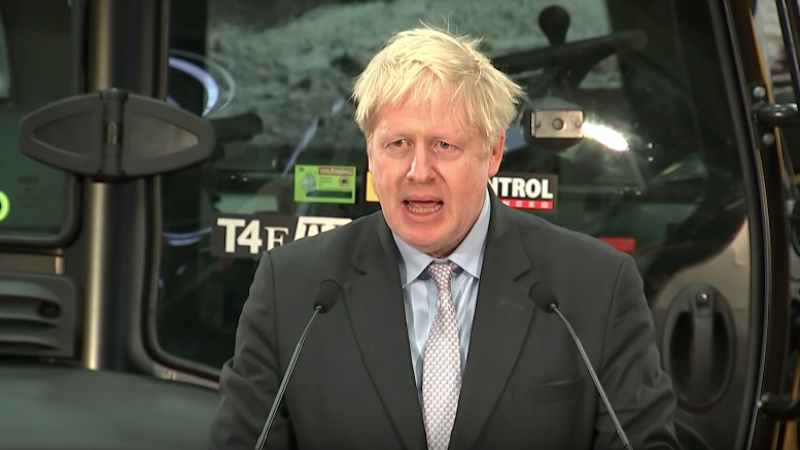
This Groundhog Day dystopia in which we find ourselves sees Theresa May, once again, attempt to sell her Brexit deal to parliament. It is being pitched as a “bold” new offer – but many Tories reckon that stands for “bit of Labour drivel” while Labour doesn’t think the proposal meets its key demands. The Prime Minister needed to supply at least a permanent customs union for Jeremy Corbyn to consider selling the deal to his party, but it is understood only workers’ rights guarantees and perhaps a temporary customs union are on the table. Once again, May’s deal falls between two stools, pleasing nobody and getting nowhere.
Those seeking compromise, particularly the supporters of a Norway-style agreement, are worried that without agreement a no-deal exit could happen all too easily. It makes some sense for MPs to pass the withdrawal agreement bill at second reading in early June, then amend the bill and only pass the whole thing if those amendments are successful. But Labour doesn’t want to make the very bold move of supporting the government at any stage, as talk of second and third readings won’t translate well into 15-second news bulletins, and isn’t willing to take the risk of the whole bill being accidentally approved somehow. Plus, hardcore Remainers are willing to bet that the Commons would rather revoke Article 50 than let no deal happen.
As well as possibly overestimating how easily indecision could lead to no deal, this bet is complicated by the upcoming Tory leadership race. It will probably produce a hard Brexiteer. Polls show Boris Johnson is the favourite among the Tory grassroots – the question is whether he can secure enough support from parliamentary colleagues to reach the final stage, when members get a say between the two MPs left in the contest. If Britain’s Trump does get the keys to No10, the risk of no deal shoots up. Further Tory MP resignations would surely ensue, sparking a general election, but a vote during Johnson’s honeymoon period – remember, he is already the most popular Tory politician – could generate the most terrifying set of outcomes: the right of the Tory party in power, a Conservative majority, an unprincipled and therefore unpredictable Prime Minister, and no deal.
LabourList readers certainly see Johnson as the biggest threat to both Corbyn’s electoral chances and the country, according to our latest survey. Almost half of our 4,478 respondents picked the former Foreign Secretary, out of 18 possible candidates, as the “most difficult for Jeremy Corbyn to beat in a general election” – and a huge 72% said he would be “the most damaging to the country as a Prime Minister”.
The survey results are well worth a read in full. They show that a substantial chunk of our readers (30%) won’t vote Labour on Thursday, but a much smaller group (11%) would cast a vote against Labour in a general election. This supports Lisa Nandy’s argument: “For Labour to simply make an electoral calculation based on the apparent short-term interest of the party in these European elections, to scoop up the Remain vote and let the Brexit Party take the bulk of the Leave vote, would be a historic mistake.”
Our readers are also highly supportive of the three policies newly backed by Momentum – a four-day week, closing all detention centres and supporting a ‘green new deal’. A stunning 89% of readers said Labour should commit to zero carbon emissions by 2030. What else will Momentum propose in the run-up to conference? We don’t know yet, but in the meantime our columnist Sabrina Huck is calling for the new policy process to be democratised.
Sign up to LabourList’s morning email for everything Labour, every weekday morning.



More from LabourList
‘The High Court judgment brings more uncertainty for the trans community’
‘There are good and bad businesses. Labour needs to be able to explain the difference’
‘This ruling should now remove any remaining barrier to approval of EHRC code’